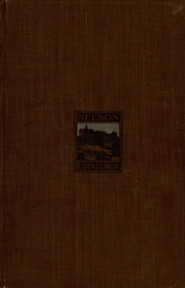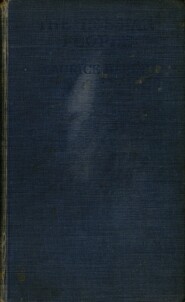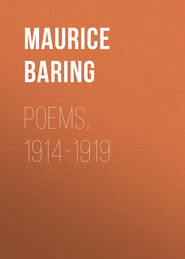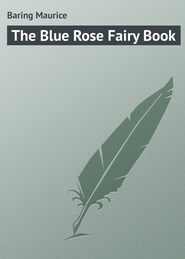По всем вопросам обращайтесь на: info@litportal.ru
(©) 2003-2024.
✖
Overlooked
Настройки чтения
Размер шрифта
Высота строк
Поля
"Is 'another story'?" I said.
"Quite a different story," he said gravely.
Rudd then left me. He was going out with Mrs. Lennox. Not long after he had gone, Canning himself came and talked to me. He said he was not staying long. He had not much leave and there was a great deal he must do in England. He had come here to see a special doctor who was supposed to know all about malaria. But he had found this doctor was no longer here. He had meant to have a holiday, as he liked watering-places – they amused him – but he found he had had so much to do in England. He kept on getting so many business letters that he would have to go away much sooner than he intended. He was going back to South Africa at the end of the month.
"I have still got another year out there," he said. "After that I shall take up the career of a farmer in England, unless I settle in Africa altogether. It is a wonderful place. I have been so much away that I hardly feel at home in England now. At least, I think I shall hardly feel at home there. I only passed through London on my way out here."
I told him that if he ever came to Italy he must stay with me at Cadenabbia. He said he would like to come to Italy. He had several Italian friends. One of them, Donna Maria Alberti, had been here yesterday, but she had gone. He sat for some time with me, but he did not talk much.
After dinner I found the usual group, all but Miss Brandon who had got a headache, and Kranitski who was playing in the Casino. Canning joined us for a moment, but he did not stay long.
The next day I saw nothing of any of the group. There were races going on not far off, and I had gathered that Mrs. Lennox was going to these.
It was two or three days after this that Kranitski came up to my room at ten o'clock in the morning, and asked whether he could see me. He said he wanted to say "Good-bye," as he was going away.
"My plans have been changed," he said. "I am going to London, and then probably to South Africa at the end of the month. I have been making the acquaintance of that nice Englishman, Canning. I am going with him."
"Just for the sea voyage?" I asked.
"No; I shall stay there for a long time. I am Europamüde, if you know what that means – tired of Europe."
"And of Russia?" I asked.
"Most of all of Russia," he said.
"I want to tell you one thing," he went on. "After our meeting the other day I have been thinking you might think wrong. You are what we call in Russia very chutki, with a very keen scent in impressions. I want you not to misjudge. You may be thinking the obstacle has come back. It hasn't. I am free as air, as empty air. That is what I have been wanting to tell you. If you are understanding, well and good. If you are not understanding, I can tell you no more. I have enjoyed our acquaintance. We have not been knowing each other much, yet I know you very well now. I want to thank you and go."
I asked him if he would like letters. I said I wrote letters on a typewriter.
He said he would. I told him he could write to me if he didn't mind letters being read out. My sister generally read my letters to me. She stayed with me whenever she could at Cadenabbia. But now she was busy.
He said he would write. He didn't mind who read his letters. I told him I lived all the year in Italy, and very seldom saw anyone, so that I should have little news to send him. "Tell me what you are thinking," he said. "That is all the news I want."
I asked if there was anything else I could do for him. He said, "Yes, send me any books that Mr. Rudd writes. They would interest me."
I promised him I would do this. Then he said "Good-bye." He went away by the seven o'clock train.
That evening I saw no one. The next morning I learnt that Canning had gone too.
Rudd came up to my rooms to see me, but I told Henry I was not well and he did not let him come in.
The next morning I talked to Princess Kouragine at the door of the hotel. She was just leaving. I asked after Miss Brandon.
"They have gone," said the Princess. "They went last night to Paris. They are going to Munich and then to Bayreuth. Jean asked me to say 'Good-bye' to you. She said she hopes you will come here next year."
"Has Rudd gone with them?" I asked.
"He will meet them at Bayreuth later. He does not love Mozart. And there is a Mozart festival at Munich."
I asked after Miss Brandon.
"The same as before," said the Princess. "The lamp was lit for a moment, but they put it out. It is a pity. The man behaved well."
At that moment we were interrupted. I wanted to ask her a great deal more. But the motor-bus drove up to the door. She said "Good-bye" to me. She was going to Paris. She would spend the winter at Rome.
In the afternoon I saw Mrs. Summer, but only for a moment. She told me Miss Brandon had sent me a lot of messages, and I wanted to ask her what had happened and how things stood, but she had an engagement. We arranged to meet and have a long talk the next morning.
But when the next morning came, I got a message from her, saying she had been obliged to go to London at once to meet her husband.
A little later in the day, I received a letter by post from my unmarried sister, saying she would meet me in Paris and we could both go back to Italy together. So I decided to do this. I saw Rudd once before I left. He dined with me on my last night. He said that his holiday was shortly coming to an end. He would spend three days at Bayreuth and then he would go back to work.
"On the Sleeping Beauty?" I asked.
"No, not on that." He doubted whether he would ever touch that again. The idea of it had been only a holiday amusement at first. "But now," he said, "the idea has grown. If I do it, it will have to be a real book, even if only a short one, a nouvelle. The idea is a fascinating one. The Sleeping Beauty awake and changed in an alien world. Perhaps I may do it some day. If I do, I will send it to you. In any case I was right about Miss Brandon. She would be a better heroine for a fairy tale than for a modern story. She is too emotionless, too calm for a modern novel."
"I have got another idea," he went on, "I am thinking of writing a story about a woman who looked as delicate as a flower, and who crushed those who came into contact with her and destroyed those who loved her. The idea is only a shadow as yet. But it may come to something. In any case I must do some regular work at once. I have had a long enough holiday. I have been wasting my time. I have enjoyed it, it has done me good, and conversations are never wasted, as they are the breeding ground of ideas. Sometimes the ideas do not flower for years. But the seed is sown in talk. I am grateful to you too, and I hope I shall meet you here again next year. I can't invent anything unless I am in sympathetic surroundings."
The next day I left Haréville and met my sister in Paris. We travelled to Cadenabbia together.
PART II
FROM THE PAPERS OF ANTHONY KAY
I
Two years after I had written these few chapters, I was sent once more to Haréville. Again I went early in the season. There was nobody left of the old group I had known during my first visit. Mrs. Lennox and her niece were not there, and they were not expected. They had spent some months at Haréville the preceding year.
I had spent the intervening time in Italy. I had heard once or twice from Mrs. Summer, and sometimes from Kranitski. He had gone to South Africa with Canning and had stayed there He liked the country. Miss Brandon was not yet married. Princess Kouragine I had not seen again. Rudd I had neither heard from nor of. Apparently he had published one book since he had been to Haréville and several short stories in magazines. The book was called The Silver Sandal, and had nothing to do with any of his experiences here or with any of the fancies which they had called up. It was, on the contrary, a semi-historical romance of a fantastic nature.
During the first days of my stay here I made no acquaintances, and I was already counting on a dreary three weeks of unrelieved dullness when my doctor here introduced me to Sabran, the malaria specialist, who had been away during my first cure.
Dr. Sabran, besides being a specialist with a reverberating reputation and a widely travelled man of great experience and European culture, had a different side to his nature which was not even suspected by many of his patients.
Under the pseudonym of Gaspard Lautrec he had written some charming stories and some interesting studies in art and literature. Historical questions interested him; and still more, the quainter facts of human nature, psychological puzzles, mysterious episodes, unvisited by-ways, and baffling and unsolved problems in history, romance and everyday life. He was a voracious reader, and there was little that had escaped his notice in the contemporary literature of Europe.
I found him an extraordinarily interesting companion, and he was kind enough, busy as I knew him to be, either to come and see me daily, or to invite me to his house. I often dined with him, and we would remain talking in his sitting-room till late in the night, while he would tell me of some of the remarkable things that had come under his notice or sometimes weave startling and paradoxical theories about nature and man.
I asked him one day if he knew Rudd's work. He said he admired it, but it had always struck him as strange that a writer could be as intelligent as Rudd and yet, at the same time, so obviously à côté with regard to some of the more important springs and factors of human nature.
I asked him what made him think that.
"All his books," he said, "any of them. I have just been reading his last book in the Tauchnitz edition, a book of stories, not short stories: nouvelles. It is called Unfinished Dramas. I will lend it you if you like."
We talked of other things, and I took the book away with me when I went away. The next day I received a letter from Rudd, sending me a privately printed story (one of 500 signed copies) called Overlooked, which, he said, completed the series of his "Unfinished Dramas," but which he had not published for reasons which I would understand.
Henry read out Rudd's new book to me. There were three stories in the book. They did not interest me greatly, and I made Henry hurry through them; but the privately printed story Overlooked was none other than the story he had thought of writing when we were at Haréville together.
He had written the story more or less as he had said he had intended to. All the characters of our old group were in it. Miss Brandon was the centre, and Kranitski appeared, not as a Swede but as a Russian. I myself flitted across the scene for a moment.











